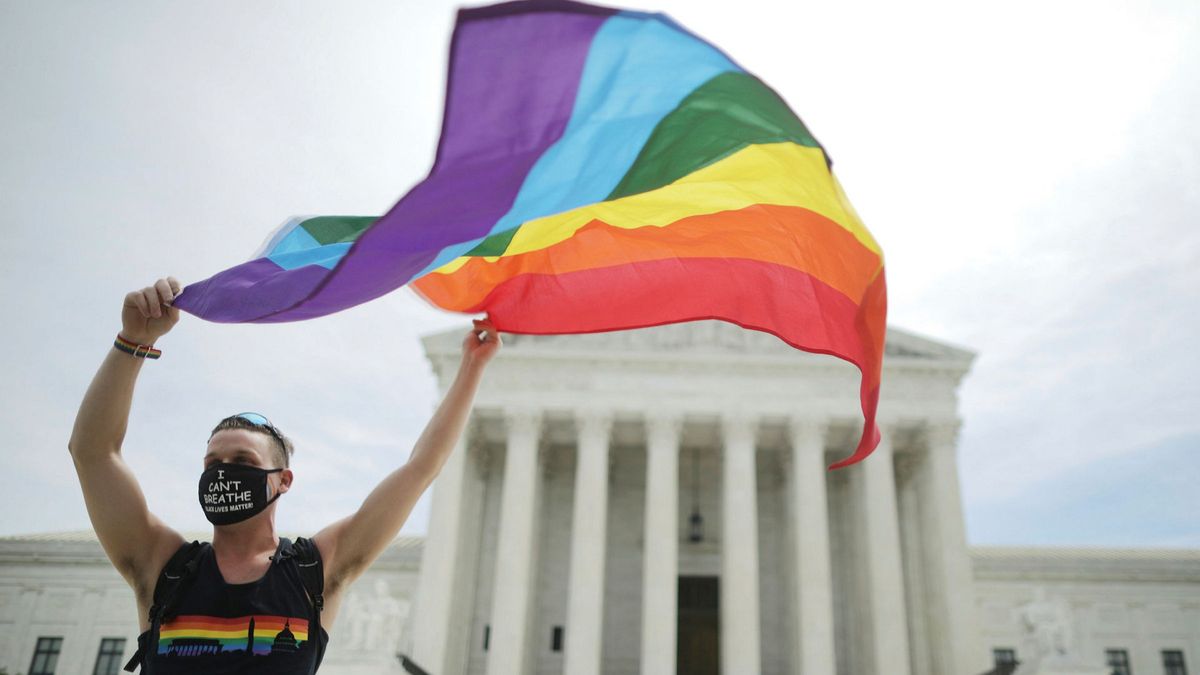In landmark ruling, Supreme Court prohibits workplace discrimination against LGBTQ workers

A few minutes every morning is all you need.
Stay up to date on the world's Headlines and Human Stories. It's fun, it's factual, it's fluff-free.
On Monday, the United States Supreme Court ruled that the 1964 Civil Rights Act – which bans workplace discrimination on the basis of sex – also covers discrimination based on sexual orientation and gender identity.
The landmark 6-3 ruling comes as a major victory for the LGBTQ community especially after the Trump administration reversed healthcare protections for transgender individuals last Friday. Two conservative judges, Neil Gorsuch and John Roberts, joined four liberal judges to form a majority. Conservative Justices Brett Kavanaugh, Clarence Thomas and Samuel Alito dissented from the ruling.
Judge Gorsuch wrote in the 168-paged ruling, “An employer who fired an individual for being homosexual or transgender fires that person for traits or actions it would not have questioned in members of a different sex. Sex plays a necessary and undisguisable role in the decision, exactly what Title VII forbids.
“Those who adopted the Civil Rights Act might not have anticipated their work would lead to this particular result. But the limits of the drafters’ imagination supply no reason to ignore the law’s demands."
Across the US, only 21 states have their own laws prohibiting workplace discrimination of the LGBTQ community, with the remaining states lacking comprehensive legal measures for the same.
The Supreme Court ruling now provides federal protections to LGBTQ workers in all states of the nation.
The ruling is related to two gay rights lawsuits in Georgia and New York and one transgender rights lawsuit in Michigan.
Georgia plaintiff Gerald Bostock was fired from his job in 2013 after joining a gay recreational softball league.
New York plaintiff Donald Zarda was also fired from his job as a skydiving instructor in 2010 after he told a customer that he was gay. The Michigan plaintiff, Aimee Stephens was fired from her job as a funeral director in 2013, two weeks after she revealed to her boss that she would transition from male to female.
Both Stephens and Zarda passed away before the ruling.
Bostock, the only surviving plaintiff, praised the ruling stating, “I truly believe I went into shock this morning. I’m proud to have taken part in this process in getting us to this historic moment.
President Donald Trump called the ruling “very powerful," adding, “They’ve ruled and we live with their decision. That’s what it’s all about, we live with the decision of the Supreme Court."
Presumptive Democratic presidential nominee Joe Biden stated that the ruling marks “a momentous step forward for our country," adding that the court had “confirmed the simple but profoundly American idea that every human being should be treated with respect and dignity, that everyone should be able to live openly, proudly, as their true selves without fear."
Several LGBTQ rights groups have also lauded the landmark decision.
James Esseks, director of the American Civil Liberties Union’s (ACLU) Lesbian Gay Bisexual Transgender & HIV Project said, “The Supreme Court’s clarification that it’s unlawful to fire people because they’re LGBTQ is the result of decades of advocates fighting for our rights. The court has caught up to the majority of our country, which already knows that discriminating against LGBTQ people is both unfair and against the law.”
In addition to praising the decision, the ACLU and Human Rights Campaign also called on Congress to pass the Equality Act which would bar discrimination against the LGBTQ community in housing, federal healthcare programs, education and other areas.
“This landmark victory is the work of decades of LGBTQ people — led by Black trans women — fighting for our community. It belongs to our clients Aimee, Don, and another plaintiff Gerald Bostock, and countless other individuals who spoke out when they experienced discrimination,” ACLU wrote on Twitter.
“Our work is not done. We still need Congress to protect LGBTQ people from discrimination in public accommodations, federal programs, and more. Congress must pass the Equality Act NOW.”
The Human Rights Campaign also tweeted, “While today’s #SCOTUS decision is a momentous occasion for the LGBTQ community, there is still work to be done. We will continue to fight for full passage of the #EqualityAct so that no one faces discrimination.”
Have a tip or story? Get in touch with our reporters at tips@themilsource.com




Comments ()